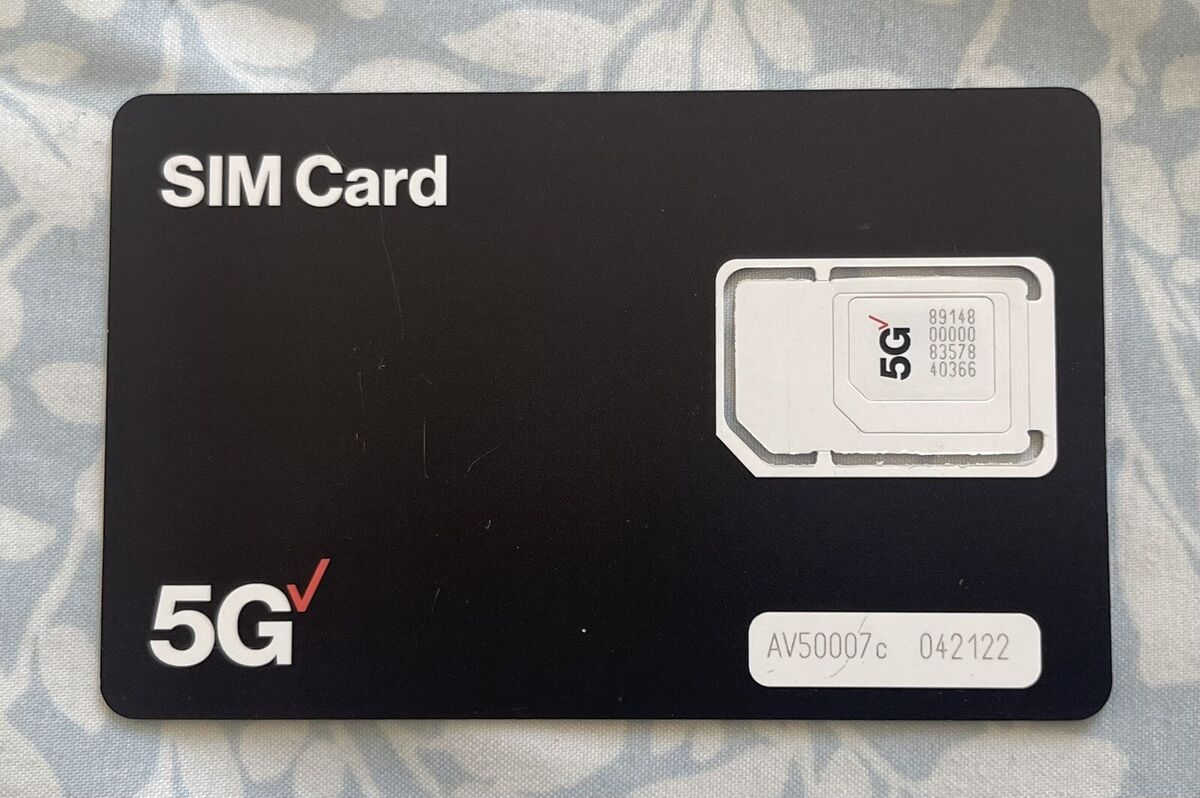Overview of SIM Card Options in France
When it comes to staying connected while traveling in France, having a local SIM card can be a game-changer. With a plethora of options available, it's essential to understand the different types of SIM cards and the associated benefits. Here's a comprehensive overview of the SIM card options in France:
1. Prepaid SIM Cards:
- Advantages: Prepaid SIM cards are ideal for travelers who want to control their expenses. They offer the flexibility of choosing a plan that suits your needs, whether it's for data, calls, or texts.
- Flexibility: With prepaid SIM cards, you're not tied down to a long-term contract, making them perfect for short-term stays or frequent travelers.
2. Postpaid SIM Cards:
- Convenience: Postpaid SIM cards are suitable for individuals planning an extended stay in France. They often come with generous data allowances and inclusive minutes for international calls.
- Billing Cycle: Postpaid plans are billed on a monthly basis, offering convenience for those who prefer not to worry about frequent top-ups.
3. Data-Only SIM Cards:
- Ideal for Tablets and Dongles: If you primarily need data for your tablet, laptop, or dongle, a data-only SIM card is the perfect solution. These SIM cards are designed specifically for accessing the internet and are available in various data capacities.
4. Tourist SIM Cards:
- Tailored for Visitors: Tourist SIM cards are designed to cater to the needs of travelers. They often include generous data allowances, free international calls, and other perks to enhance the visitor's experience in France.
5. International Roaming SIM Cards:
- Global Connectivity: For individuals who require seamless connectivity across multiple countries, international roaming SIM cards provide the convenience of using the same SIM card in different destinations, including France.
Understanding the diverse range of SIM card options available in France empowers travelers to make an informed decision based on their specific communication needs. Whether it's the flexibility of a prepaid SIM card, the convenience of a postpaid plan, or the tailored features of a tourist SIM card, there's a solution to suit every traveler's requirements.
Requirements for Obtaining a SIM Card
Before diving into the process of obtaining a SIM card in France, it's crucial to understand the specific requirements involved. Whether you're a tourist or a long-term visitor, the regulations for obtaining a SIM card are designed to ensure compliance with local telecommunications laws while facilitating seamless access to mobile services. Here's what you need to know about the requirements for obtaining a SIM card in France:
1. Proof of Identity:
To purchase a SIM card in France, you'll need to provide a valid form of identification. For French residents, this typically involves presenting a government-issued ID card, such as a national identity card or a residence permit. For non-residents, a passport is generally accepted as the primary form of identification. It's important to ensure that your identification documents are valid and not expired.
2. Address Verification:
In compliance with regulatory requirements, mobile operators in France may ask for proof of address when activating a new SIM card. This is particularly relevant for postpaid plans or long-term contracts. While tourists and short-term visitors may not be subject to stringent address verification, individuals staying in France for an extended period may need to provide proof of residence, such as a utility bill or a rental agreement.
3. Age Restrictions:
In France, there are specific age restrictions related to the acquisition of SIM cards. Generally, individuals under the age of 18 may need parental consent to obtain a SIM card or sign a mobile service contract. This is an important consideration for minors traveling to France or for parents seeking to facilitate mobile connectivity for their children during their stay in the country.
4. Compliance with Registration Procedures:
Mobile operators in France are required to adhere to registration procedures for SIM card activations. This is part of the government's efforts to enhance security measures and prevent unauthorized or anonymous use of mobile services. As a result, customers may be asked to provide personal information and complete registration forms at the point of purchase or activation.
Understanding these requirements is essential for a smooth and efficient process when obtaining a SIM card in France. By ensuring that you have the necessary identification, address verification (if applicable), and compliance with age restrictions and registration procedures, you can navigate the process with confidence, enabling you to stay connected and enjoy seamless communication during your time in France.
Purchasing a SIM Card in France
Purchasing a SIM card in France is a straightforward process, with multiple options available to suit diverse communication needs. Whether you prefer the convenience of major mobile operators' stores or the flexibility of purchasing from authorized retailers, obtaining a SIM card can be done efficiently. Here's a detailed guide on the various avenues for purchasing a SIM card in France:
-
Mobile Operator Stores: Major mobile operators such as Orange, SFR, and Bouygues Telecom have dedicated stores across France, including in popular tourist destinations and urban centers. Visiting these stores allows you to explore a wide range of SIM card options, receive personalized assistance from staff, and benefit from promotional offers exclusive to the operator's retail outlets.
-
Authorized Retailers: In addition to mobile operator stores, authorized retailers, including convenience stores, electronics shops, and kiosks, offer SIM cards from different providers. This option provides convenience for travelers, as these retailers are often located in high-traffic areas, such as train stations, airports, and city centers.
-
Online Purchases: Many mobile operators and third-party sellers offer the option to purchase SIM cards online. This method allows you to review available plans, compare offerings, and have the SIM card delivered to your preferred address, whether it's your accommodation in France or a pickup location upon your arrival.
-
Tourist SIM Card Stands: In tourist hubs and popular attractions, dedicated stands or kiosks offer tourist-specific SIM cards tailored to the needs of visitors. These SIM cards often come with preloaded credit, generous data allowances, and additional perks designed to enhance the travel experience.
-
SIM Card Vending Machines: In some locations, particularly in airports and transportation hubs, SIM card vending machines provide a convenient self-service option for purchasing a SIM card. These machines offer a selection of SIM cards from different providers, allowing travelers to choose the most suitable option based on their preferences.
By understanding the diverse avenues for purchasing a SIM card in France, travelers can select the most convenient and suitable method based on their preferences and travel itinerary. Whether it's the personalized assistance offered in mobile operator stores, the convenience of online purchases, or the accessibility of SIM card vending machines, obtaining a SIM card sets the stage for seamless communication and connectivity during your time in France.
Activating Your SIM Card
Activating your SIM card is a crucial step in establishing seamless connectivity during your time in France. Whether you've purchased a prepaid SIM card, a postpaid plan, or a tourist-specific SIM card, the activation process is essential for unlocking the full range of mobile services. Here's a detailed guide on the steps involved in activating your SIM card:
-
Inserting the SIM Card: Upon purchasing your SIM card, carefully remove it from the packaging and insert it into your mobile device. Depending on the type of device you have, this may involve locating the SIM card tray, removing the old SIM card (if applicable), and securely placing the new SIM card into the designated slot.
-
Powering On Your Device: Once the SIM card is inserted, power on your device. If the device prompts you to enter a PIN code for the SIM card, refer to the documentation provided with the SIM card or the instructions from the mobile operator. Entering the correct PIN code is essential for the activation process to proceed smoothly.
-
Connecting to the Network: After powering on your device, it will initiate the process of connecting to the mobile network. Depending on the mobile operator and the specific SIM card you've purchased, this may involve a brief waiting period as the network recognizes and activates the SIM card.
-
Receiving Activation Confirmation: In many cases, you'll receive a notification or a text message on your device confirming that the SIM card has been successfully activated. This message may include details about your new phone number, the allocated data, minutes, and texts (if applicable), and any additional information related to your plan.
-
Testing Connectivity: Once the activation is confirmed, it's time to test the connectivity of your SIM card. Make a test call, send a text message, and access the internet to ensure that all services are functioning as expected. If you encounter any issues, referring to the troubleshooting information provided with the SIM card or contacting customer support can help resolve any connectivity challenges.
-
Registering Your SIM Card: Depending on the regulatory requirements in France, you may need to register your SIM card after activation. This typically involves providing personal information and completing any necessary registration forms, either online or through the mobile operator's designated channels.
By following these steps, you can activate your SIM card with confidence, ensuring that you have access to essential mobile services throughout your stay in France. Whether it's for staying connected with loved ones, navigating your travel itinerary, or accessing important information on the go, a successfully activated SIM card is the gateway to seamless communication and connectivity.
Top-Up Options for Prepaid SIM Cards
Top-up options for prepaid SIM cards in France offer flexibility and convenience for travelers and residents alike. Whether you need to replenish your data, minutes, or texts, several convenient methods are available to ensure uninterrupted mobile services. Here's a detailed exploration of the top-up options for prepaid SIM cards:
-
Online Portals and Mobile Apps: Major mobile operators in France provide dedicated online portals and mobile apps that enable users to top up their prepaid SIM cards seamlessly. By logging into the operator's website or using the official mobile app, customers can easily add credit to their accounts, select from a range of top-up denominations, and complete the transaction securely using various payment methods, including credit/debit cards and digital wallets.
-
Retail Stores and Kiosks: For those who prefer in-person transactions, retail stores, convenience stores, and kiosks across France offer the option to purchase top-up vouchers or directly add credit to prepaid SIM cards at the point of sale. This method allows customers to obtain physical top-up vouchers with unique codes that can be redeemed online or directly applied to their accounts through the store's terminal.
-
Automatic Top-Up Services: Many mobile operators provide automatic top-up services, allowing customers to set up recurring payments or trigger top-ups based on predefined thresholds. By linking a payment method to their prepaid accounts, users can ensure continuous access to mobile services without the need for manual intervention, providing peace of mind and uninterrupted connectivity.
-
ATM and Bank Transactions: Some banks and ATMs in France offer the option to top up prepaid SIM cards directly through their banking services. This method allows customers to add credit to their accounts using their bank's digital platforms or ATMs, providing an additional avenue for topping up mobile credit while managing other financial transactions.
-
Third-Party Retailers and Online Platforms: Apart from official mobile operator channels, third-party retailers and online platforms offer a diverse range of top-up options for prepaid SIM cards. These include digital marketplaces, electronic top-up services, and authorized resellers, providing customers with additional choices for adding credit to their accounts based on their preferences and accessibility.
By leveraging these top-up options, users of prepaid SIM cards in France can maintain control over their mobile expenses, ensure continuous access to essential services, and enjoy the flexibility of adding credit based on their specific communication needs. Whether it's the convenience of online portals, the accessibility of retail stores, or the seamless automation of recurring top-ups, these options cater to diverse preferences and contribute to a hassle-free mobile experience.
Tips for Using Your SIM Card in France
-
Understanding Network Coverage: Before relying heavily on your SIM card, it's advisable to familiarize yourself with the network coverage in the areas you plan to visit. While major cities generally have robust coverage, rural or remote regions may have varying levels of connectivity. Being aware of potential coverage gaps can help you plan your communication needs accordingly.
-
Data Usage Management: Given the increasing reliance on mobile data for navigation, communication, and leisure activities, it's essential to manage your data usage effectively. Consider utilizing Wi-Fi networks whenever available to conserve data and opt for data-saving features on your device to optimize usage without compromising your online experience.
-
International Roaming Considerations: If you have an international roaming SIM card, be mindful of the associated charges when using your SIM card outside of France. While international roaming offers convenience, it's important to understand the tariffs for calls, texts, and data usage in different countries to avoid unexpected fees.
-
SIM Card Security: Protecting your SIM card and associated mobile device is paramount. Ensure that your device is secured with a PIN or biometric authentication to prevent unauthorized access. Additionally, store your SIM card's PIN and PUK codes in a safe and accessible location in case you need to manage your SIM card settings or address any issues while in France.
-
Utilizing Value-Added Services: Explore the value-added services offered by your mobile operator, such as international calling packages, data bolt-ons, and promotional offers. These services can enhance your connectivity experience and provide cost-effective solutions for staying in touch with contacts both in France and abroad.
-
Customer Support Accessibility: Familiarize yourself with the customer support channels provided by your mobile operator. Whether it's through online chat, phone support, or in-person assistance at retail outlets, knowing how to reach customer support can be invaluable if you encounter technical issues, require assistance with top-ups, or have inquiries about your SIM card plan.
-
Compliance with Local Regulations: Stay informed about any regulatory updates or requirements related to SIM card usage in France. This includes understanding the rules governing SIM card registration, privacy regulations, and any recent changes that may impact your mobile usage. Staying compliant ensures a smooth and uninterrupted communication experience during your time in France.
By incorporating these tips into your SIM card usage strategy, you can maximize the benefits of your mobile connectivity in France while navigating potential challenges with confidence and efficiency.

























